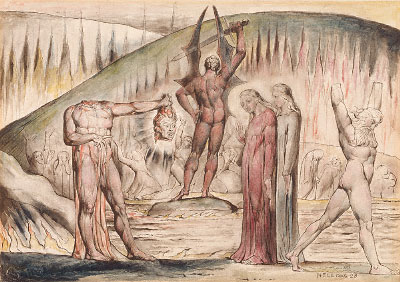Thomas Aquinas on the Meaning of Schism

Thomas offers a pointed response in Summa Theologiae II-II.39 to the popular question raised by non Catholics, "why can we not all be reckoned part of the one, holy, Catholic and apostolic Church if we share the same faith and many of the same traditions?!"
Thomas' extended summary begins with a direct quote from St. Augustine's Contra Faustum, wherein Augustine explains that such questions beg the very definition of the schismatic: "the word schism applies to those who have the same doctrines and worship as other people, and yet choose to separate themselves." (Contra Faustum XX.3) In other words, Augustine insists that the Church which Jesus founded is about more than confessions and traditions; rather, as St. Paul reminds us in I Corinthians, it is foremostly about the bonds of love.
In fact, it is of the essence of schism that within schismatic communities one finds that "little or no change is made from the original." (Contra Faustum XX.4)
In brief, Thomas' four articles on schism conclude as follows:
1. Schism is by its nature the sin of a breaking away, and creating a division from the whole which disrupts unity. In particular, schism is the sin of cuting away from the unity of the faithful under the rule of its one Head, Jesus Christ, and His vicar. In other words, schism is the refusal to submit to the rule and jurisdiction of the Roman pontiff.
2. As a grave sin, schism will always tend to the even graver sin of heresy and unblief in order to justify its perpetration; having broken away from the whole, the schismatic will add to his sin by embracing false doctrine. In particular, in as much as papal infallibility and the primacy and jurisdiction of the sovereign pontiff have been solemnly defined de fide, modern schisms constitute a practical denial of the very truths of the faith, and thus modern schisms are heretical in se.
4. Schismatics thus properly lose the right to exercise the spiritual powers of their ministry with regard to both jurisdiction and licit use. Although the sacramental power to confect the sacraments may remain in the validly ordained schismatic, the jurisdictional power to absolve from sin does not remain.
5. It is just right and proper that schismatics who have severed themselves from the unity of the Church should be fittingly punished with the penalty invited by their own action, namely, excommunication.


<< Home